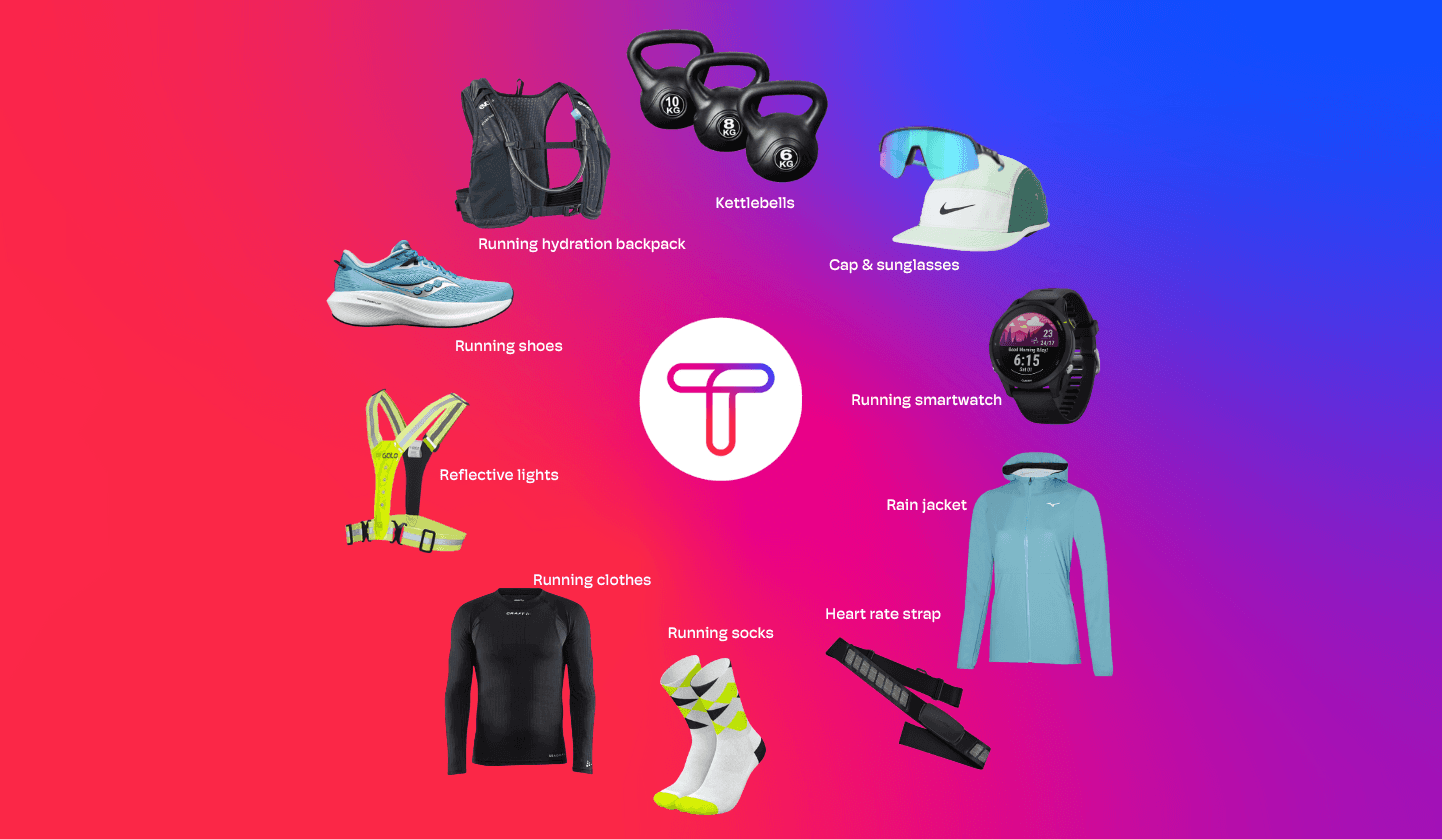As the year comes to an end, it’s also the season of gift-giving! Whether you’re a runner yourself or shopping for someone who is, we’re excited to share our list of 10 essential accessories for runners.
More Than One Pair of Running Shoes
The term "shoe rotation" exists for a reason. Alternating between different models isn’t just good for avoiding repetitive strain, but also for adding an edge to your speed sessions.
Switch your long-distance shoes with a lighter pair and feel the difference during tempo or interval runs. Perhaps it’s time to consider a pair of carbon-plated shoes?
A Running Watch
You can often spot a runner by their running watch—they’re inseparable! Accurate GPS tracking is crucial for proper training, especially for intervals where precise pacing is key. Brands like Garmin, Polar, and Apple provide excellent options, and smartphones just don’t offer the same level of functionality for runners.
Not sure what to look for in a running watch? Check out our blog for tips on choosing the right one.
A Waterproof Rain Jacket
A rain jacket isn’t just a luxury; it’s a must-have to keep you dry and prevent excessive cooling during wet runs. High-quality waterproof jackets are worth the investment. My personal favorites include the Mizuno Waterproof 20K ER and Brooks’ High Point WP Jacket.
In winter, you want to avoid getting wet in the already colder outdoor temperatures. Being wet and cold impacts both your performance and recovery, as your body has to work harder to maintain its temperature. That’s why it’s important to protect yourself from these two elements.
Pro Tip: Don’t be fooled: water-resistant does not mean waterproof. You want the latter, especially in heavy rain. The difference is often noticeable in the zipper: is it concealed in a rubber seal? If so, the jacket is likely waterproof.
Lights for Visibility
We’ve mentioned it before: visibility is key! A headlamp isn’t just for safety; it ensures you can clearly see where you’re going, helping you avoid injuries caused by unseen obstacles.
A Hydration Backpack
With rising temperatures and runners increasingly tackling longer distances, a hydration backpack is becoming indispensable. Proper hydration not only enhances performance during long runs but also aids recovery afterward. Unless you enjoy carrying a water bottle, a hydration backpack offers a comfortable alternative.
Beginner? A small backpack from Decathlon is often sufficient. If you're looking for a bit more comfort, brands like Salomon and Camelbak are your best bet.
Cap & Sunglasses
Protect your head and eyes. While there’s some debate about the necessity of running sunglasses, they certainly add comfort during sunny or glaring runs. A cap not only provides shade but also helps cool you down if you wet it before heading out!
Technical Running Socks
Socks with flat seams (or seamless designs) and reinforcements around the toes and ankles are a game-changer for runners. They reduce discomfort, increase comfort, and last longer. A no-brainer!
Don’t forget: compression is the most proven recovery method (albeit far behind rest and nutrition). So, a pair of compression socks is a must-have for post-training recovery.
Technical Running Gear
While we’ve highlighted a waterproof rain jacket, technical running clothes are a must-have year-round. Whether layering for winter or ensuring breathability in summer, technical gear meets every need. Our own gear from Bioracer is top-notch in this regard.
For Women: Don’t overlook a sturdy hair tie—simple, but essential for long hair!
Pro Tip: Peak Pro subscribers enjoy a 10% discount on running apparel at Runners’ Lab. Discover more Perks in the app (last item in the bottom menu).
A Set of Kettlebells
Coach Christophe is clear: you’re not a complete runner unless you also do strength training. Running is a high-impact sport, and strength training is crucial for handling that load. A set of kettlebells is incredibly versatile—even for following Maarten Thysen’s strength program!
A Heart Rate Monitor Strap
Not every technological innovation is an improvement. Heart rate accuracy has, on average, declined in recent years due to optical wrist sensors. These are especially unreliable during cold weather or fluctuating intensities like intervals.
If you want to analyze your training based on heart rate, we recommend using a heart rate monitor strap. It remains the only reliable way to collect accurate heart rate data.
Conclusion
Plenty of inspiration, right? And if you already own everything on this list, perhaps one of these essentials is due for an upgrade.






